Have you ever found yourself in a situation where an assumption you made went completely awry? It can be challenging to navigate the aftermath, especially when feelings have been hurt or misunderstandings have arisen. Recognizing our mistakes and taking the time to apologize can make a world of difference in mending relationships. If you're looking for guidance on how to express your sincere apologies for those incorrect assumptions, keep reading for a helpful letter template!
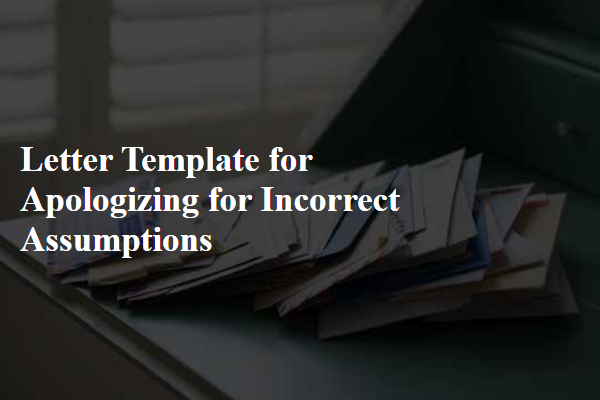
Acknowledgment of error
Incorrect assumptions can significantly undermine professional relationships and trust. An employee may incorrectly presume a colleague's availability based on past schedules, leading to miscommunication about project timelines. For instance, assuming a coworker was free to discuss important deadlines without checking their calendar could result in missed opportunities for collaboration and delays in the project completion. Acknowledging such errors openly and sincerely is critical in maintaining credibility. Employees should express regret for any inconvenience caused, clarify their misunderstanding, and provide assurance that measures will be taken to avoid similar situations in the future. A well-crafted acknowledgment can foster a culture of transparency and learning within the workplace.
Expression of regret
Expression of regret is essential in maintaining professional relationships. Acknowledgment of errors, particularly regarding incorrect assumptions, fosters trust and understanding. For instance, an individual might misinterpret a colleague's intentions during a project discussion, leading to unintended friction. Apologizing for those assumptions clarifies the misunderstanding and reinforces commitment to open communication. Personalizing the expression of regret, perhaps referencing the specific context such as a recent meeting or decision, enhances sincerity. Key details, like the project name or the date of the discussion, provide clarity and context, emphasizing the importance of the relationship and the desire for resolution.
Explanation of misunderstanding
Misunderstandings often arise in communication due to assumptions. Assumptions may be based on incomplete information or previous experiences, leading to incorrect conclusions. For example, a colleague might interpret a lack of feedback as disinterest, while the actual reason may stem from a busy schedule. Miscommunication can escalate, affecting relationships both personally and professionally. These situations highlight the importance of clarity and open dialogue. Clarifying intentions and seeking confirmation can prevent misunderstandings, fostering more effective communication. Apologizing promptly for any confusion shows accountability and a willingness to mend relationships, paving the way for a better understanding in future interactions.
Offer of solution or correction
Miscommunication often arises from incorrect assumptions, leading to misunderstandings in professional settings. This can occur when one party interprets intentions or actions differently, resulting in feelings of disappointment or frustration. For instance, a recent project deadline at XYZ Corporation was missed due to an assumption that all team members were aware of the new timeline, which was inadvertently communicated only once. A solution involves establishing a more robust communication plan, such as weekly updates and shared calendars, ensuring everyone remains informed. This approach fosters transparency and collaboration among the team, reducing the chances of future misunderstandings and improving overall project outcomes.
Commitment to prevent recurrence
Miscommunication often leads to misunderstandings, which can negatively impact relationships in personal and professional settings. Assumptions made without full knowledge of facts can create a ripple effect of distrust. Instances like this occurred during the project review meeting at the downtown office on September 15, 2023, where incorrect conclusions were drawn regarding team members' contributions. Acknowledging these mistakes is crucial for restoring transparency and credibility. Establishing a protocol for clearer communication will ensure all team members share their insights and status updates consistently, preventing similar situations in the future. Regular check-ins could also enhance team cohesion, fostering an environment of collaboration and respect.

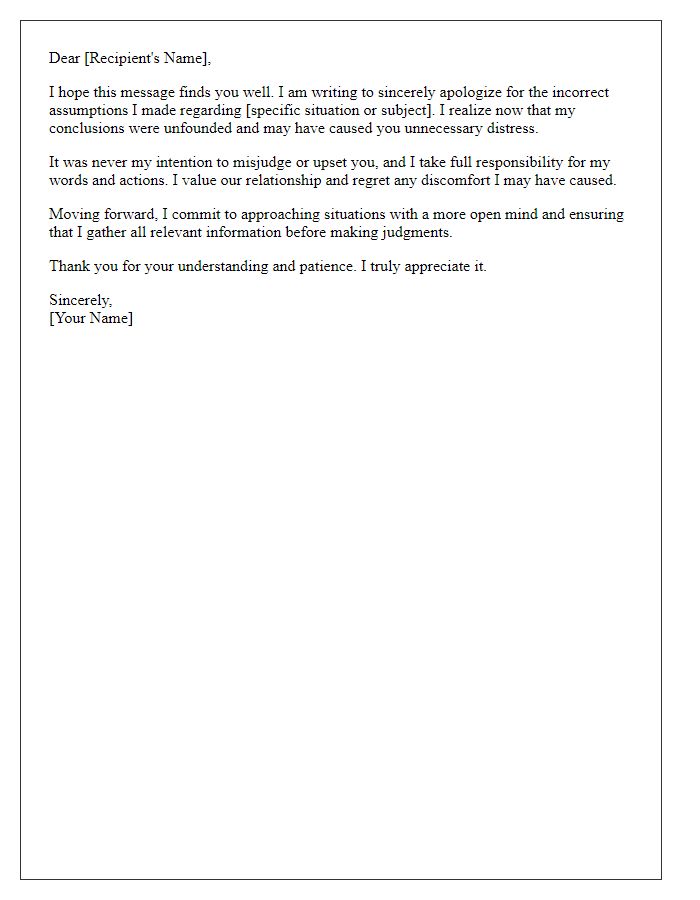
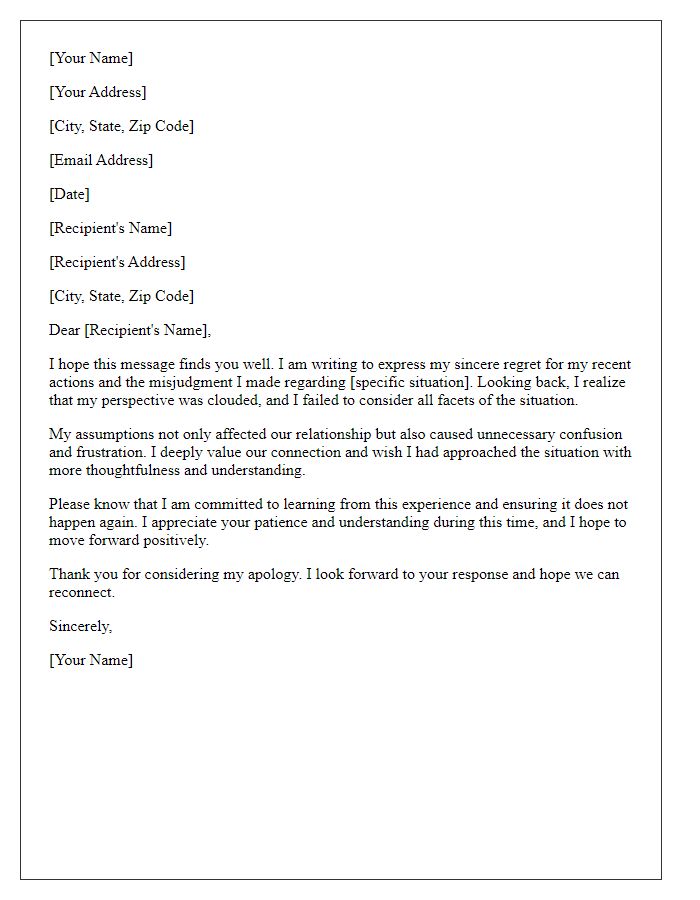
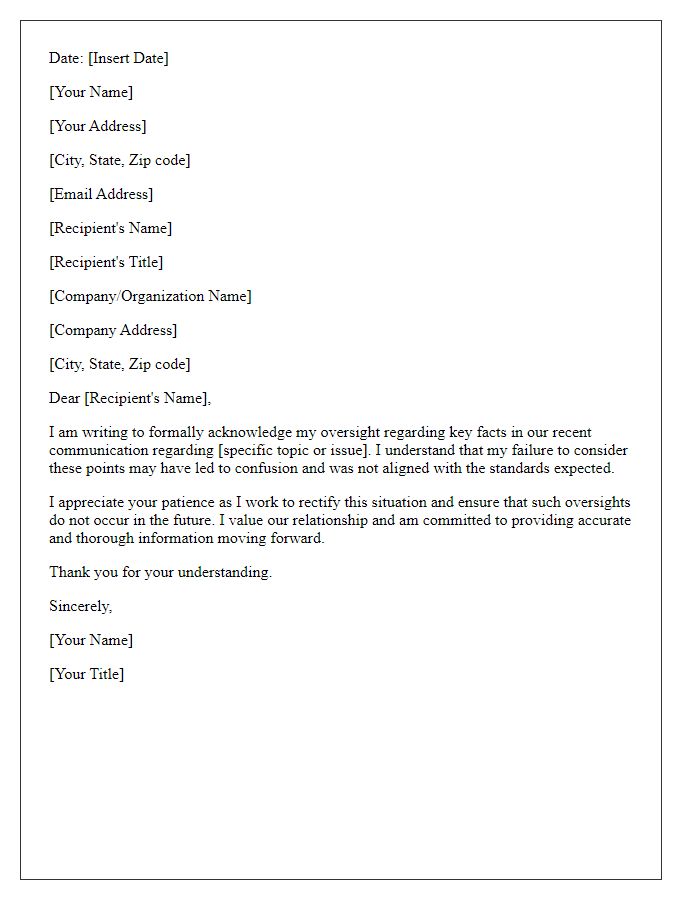
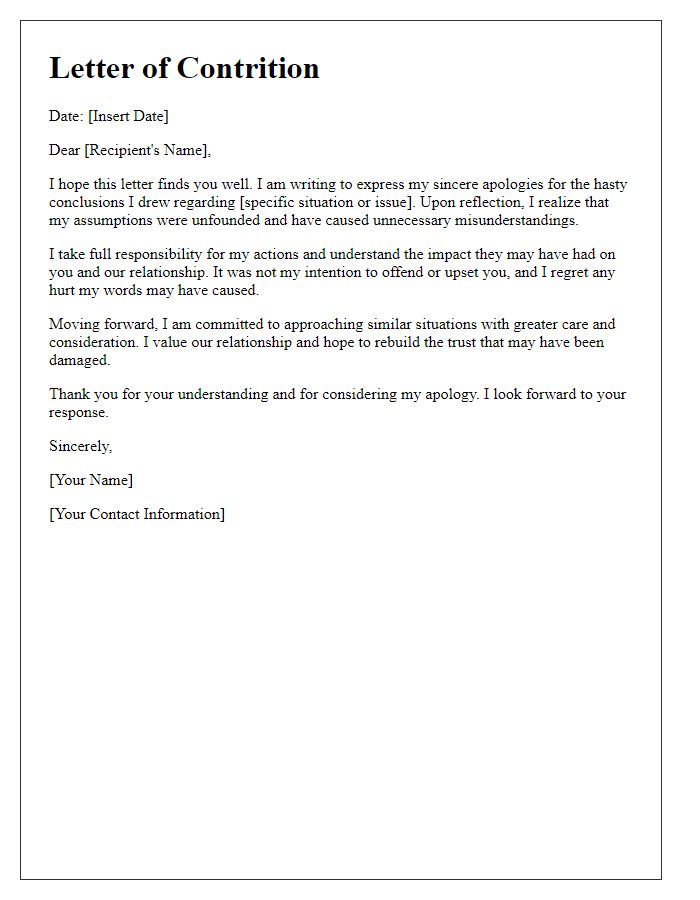
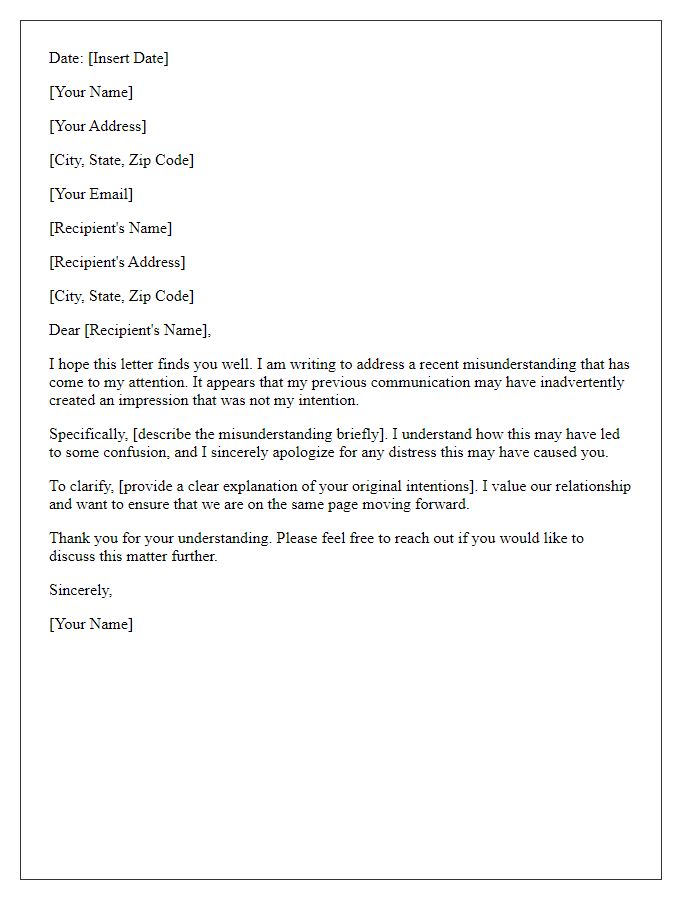
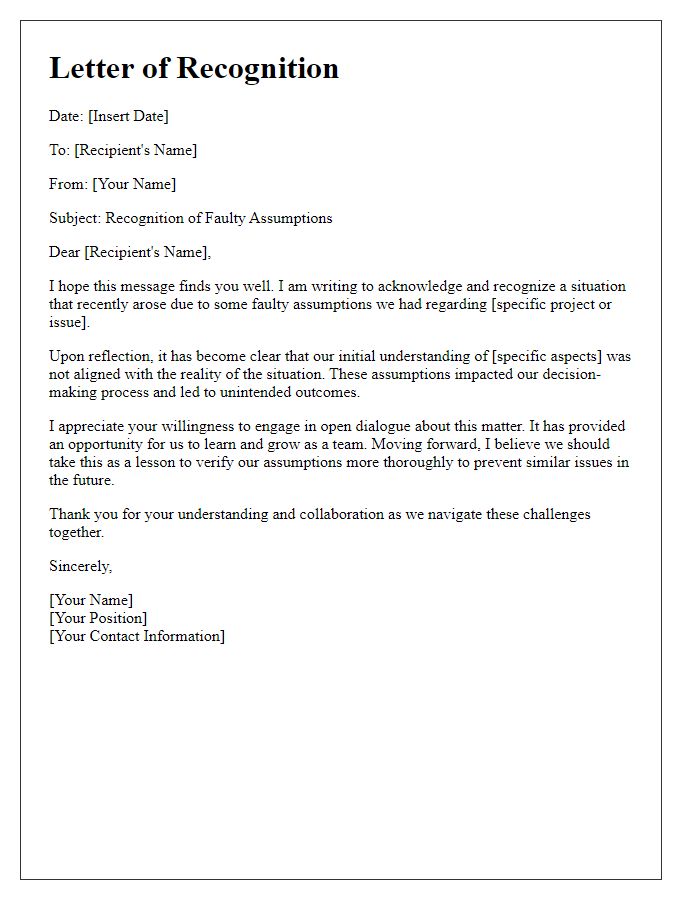
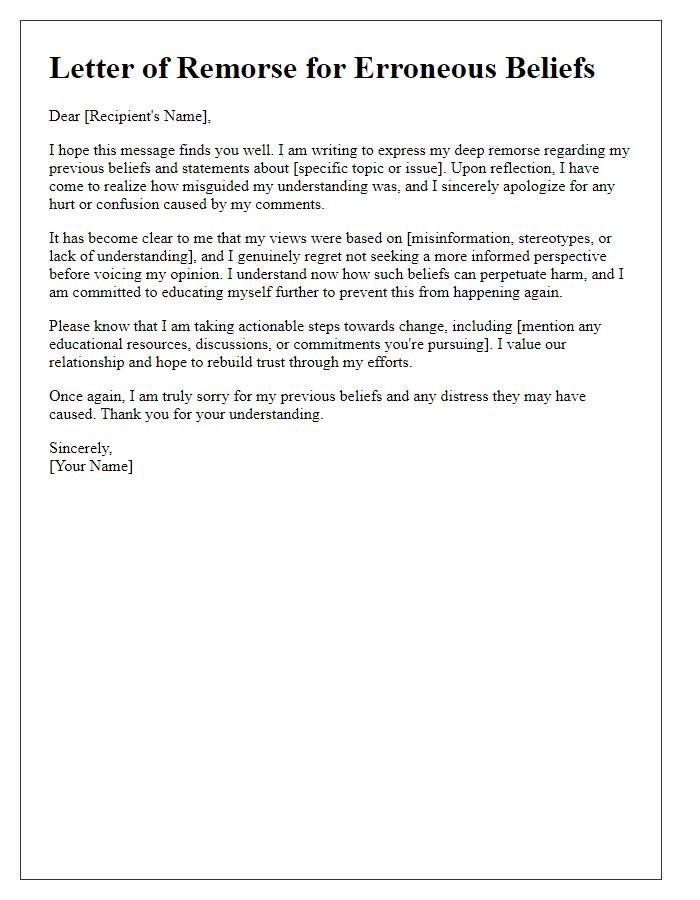
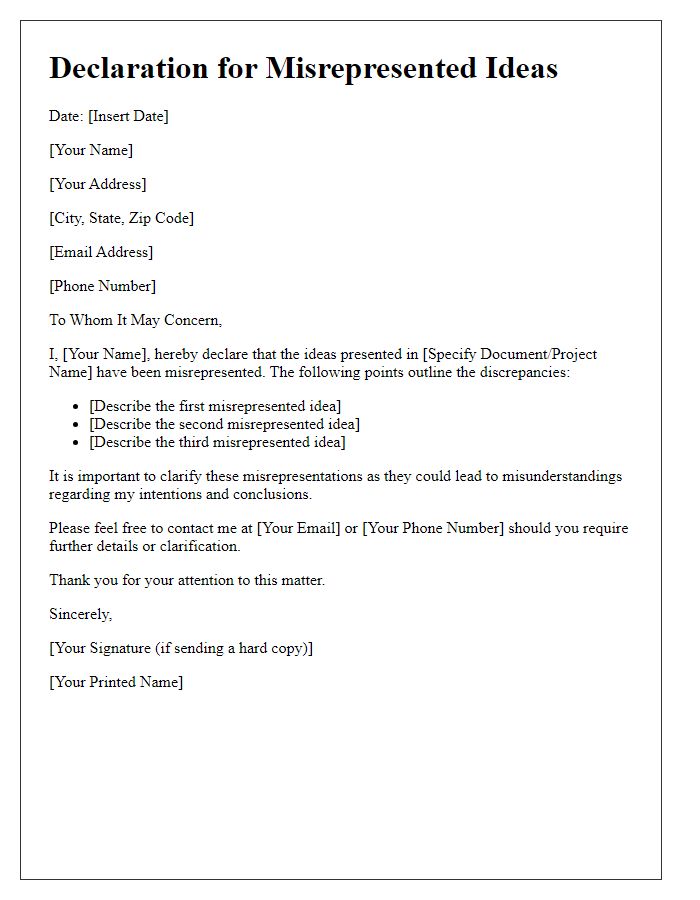
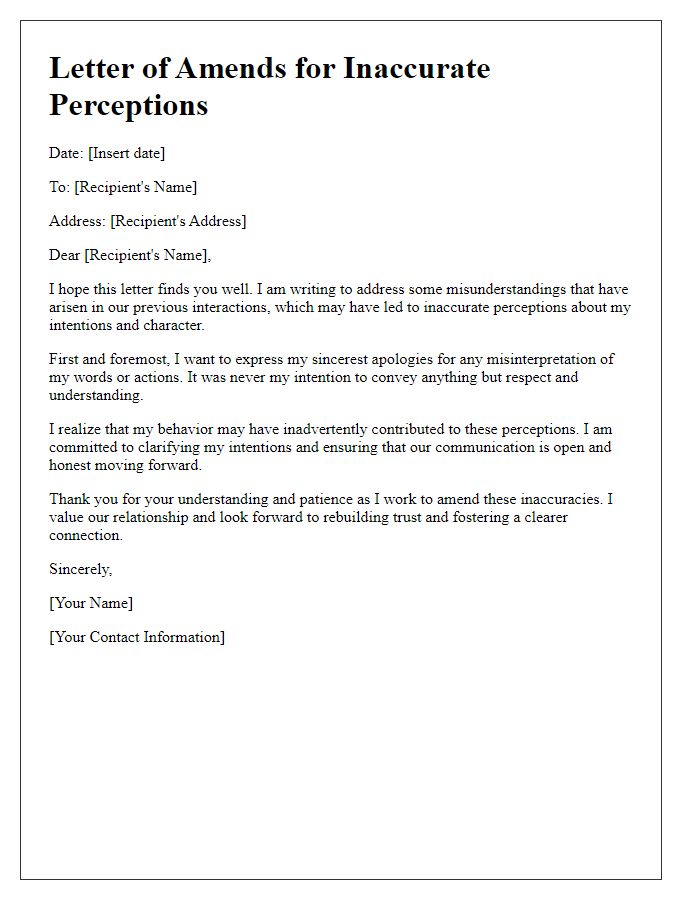
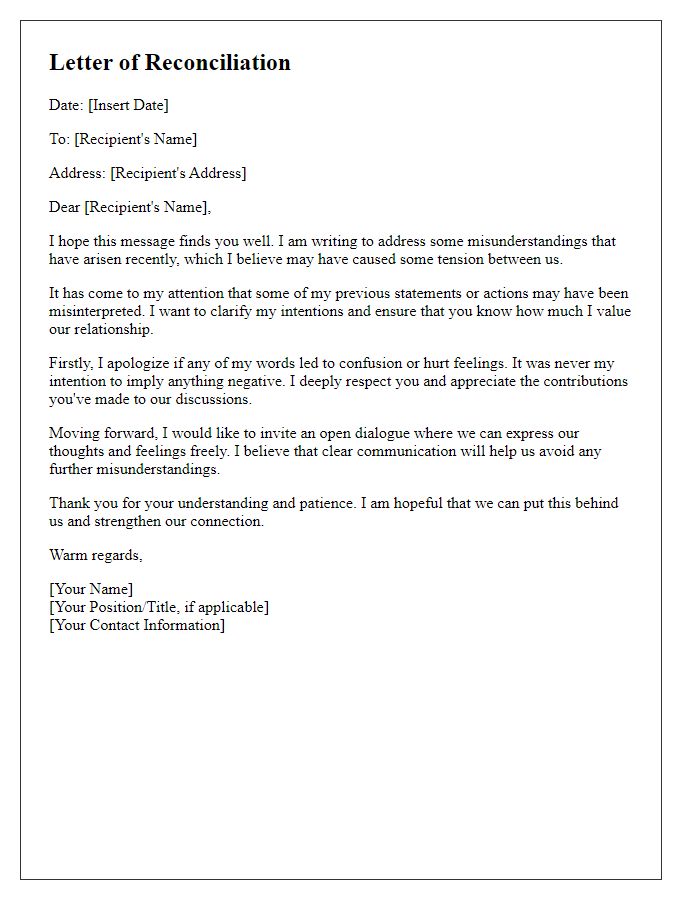

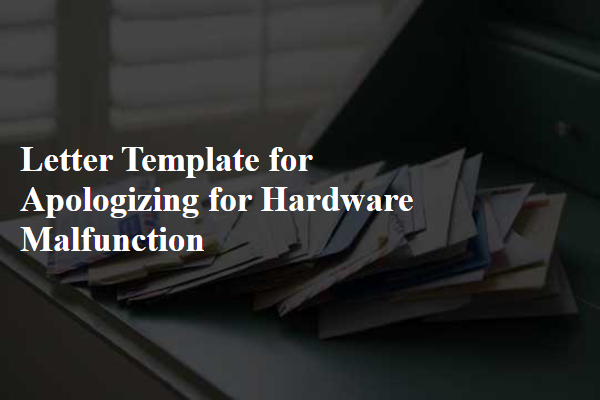
Comments